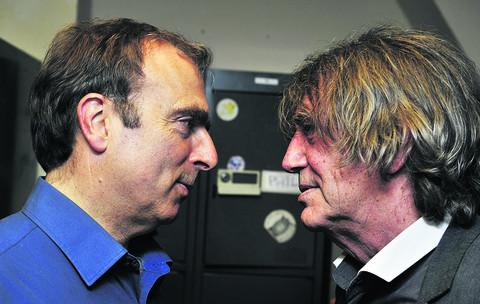Today the press is full of the UK Drug Policy Commission (UKDPC) conclusion that the Government's attempts at reducing drug use and drug harm has failed - and the Government's simply insisted its approach to tackling drugs is the right one. 'Drug usage is at it lowest level since records began,' a spokeswoman said.
About 42,000 people in England and Wales are sentenced each year for the possession of drugs, with 160,000 people given cannabis cautions, according to the commission.
The penalties for drug misuse should be relaxed so that possession of small amounts would no longer be a criminal offence, the government has been urged.
The recommendation comes in a report from the UK Drug Policy Commission, which undertook six years of research.
Its detailed report concludes the UK is wasting much of the £3bn it spends each year on tackling illicit drugs.
In fact - ask your MP - it is now considerably more than that every year and the majority of arrests are still for cannabis.
The report, called A Fresh Approach to Drugs, says the annual estimated cost to England and Wales of class A drug use is £15bn.
The commission called for parliament to 'revisit the level of penalties applied to all drug offences and particularly those concerned with production and supply. However, it stopped short of calling for the decriminalisation or legalisation of most drugs.
Commission chairwoman Dame Ruth Runciman said: 'We spend billions of pounds every year without being sure of what difference much of it makes.'
The Home Office says drug use is falling and it does not plan to alter its approach.
So, OK, so the Government is going to insist that their present approach is the correct one, despite the cost to the taxpayer and despite the fact that it is obviously not working. Of course we need to arrest those that harm others or their property, or pose a risk, but the use of a drug, whether possession and sale is allowed or banned, in itself harms nobody except possibly the user.
And of course addiction creates problems for families and communities, as does fund-raising crime.
The Government's approach to SOME drugs is different to others; for example, alcohol is well known to cause illness, violence, vandalism and absenteeism, is SOME people - those responsible for the violence, vandalsim etc, are punished by the courts - those that get sick are helped by the medical profession (if they seek it).
Yet with "drugs" (plants" like cannabis, and "drugs" like heroin and cocaine, ALL USERS are arrested and punished, if caught, with anything from a warning to a court appearance, a fine to prison - even those that use cannabis to their medical benefit
Who pays for the police and courts - we do - the taxpayers - whilst those that make the law get paid a fortune to arrange for panels of experts that will not be listened to unless they support present policy - remember Prof David Nutt, the head of the Government's previous ACMD (Advisory Council on Misuse of Drugs) who was sacked after he stuck by his panel's conclusion that policy was failing and that cannabis ought to be downgraded to class C again - Nutt was simply sacked.
Meanwhile, most of the press, stuck in prohibition, continue to write bad reports about bad consequences of drug use - seldom covering claims from those that drugs have helped, in particular cannabis, referring to growers as some sort of social menace even if they are growing only for their own medicinal use.
Where are the reports of the countless lives ruined by drug prohibition laws, those with criminal records yet no victims - banned from some overseas travel, some jobs, some insurance policies - and for what?
For nothing more harmful and dangerous than would be opening a bottle of beer or wine at home and often less dangerous than drinking a bottle of whiskey - something that many of our MP's are probably good at, considering so many subsidised bars in the House of Commons.
Come on Britain - lead the way to a common sense approach to drugs and take control - stop punishing victimless users and start protecting consumers through properly regulated outlets for adults with accurate and credible advice, tax on profits, and separation from the world of crime
Drugs Experts Call For Major Policy Review
http://www.ccguide.org/news/shownewsarticle.php?articleid=18172
Decriminalise drug use, say experts after six-year study
http://www.ccguide.org/news/shownewsarticle.php?articleid=18173
Cannabis 'no worse than junk food', says report
http://www.ccguide.org/news/shownewsarticle.php?articleid=18174
Possessing small amount of drugs 'should not be crime'
http://www.ccguide.org/news/shownewsarticle.php?articleid=18175
UKDPC Urges Decriminalization of Drug Use
http://www.ccguide.org/news/shownewsarticle.php?articleid=18177
Britain's £3bn war on drugs 'waste of time and harms lives' says watchdog
http://www.ccguide.org/news/shownewsarticle.php?articleid=18178
Light drug users 'should not get criminal records'
http://www.ccguide.org/news/shownewsarticle.php?articleid=18179

